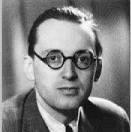István Bibó
István Bibó (August 7, 1911, Budapest – May 10, 1979, Budapest), Hungarian political scientist, sociologist, and expert on the philosophy of law. Bibó came from a Calvinist intellectual background. His father was the director of the university library in Szeged, and he married the daughter of a Reformed bishop. In 1934 he received his doctorate from the Faculty of Political and Legal Studies at the University of Szeged. During his university years he wrote a number of studies on law and freedom; during his studies abroad in Vienna and Geneva he attended lectures by the legal theorist Hans Kelsen. In 1938 he became a notary at the Budapest Court of Justice. It was in this period that he came in contact with the Márciusi Front (“March Front”), a left-wing association of so-called népi (populist) writers and university students. He became a member of the Philosophical Society, giving his inaugural lecture on “Ethics and Criminal Law,” and from 1940 he also gave lectures at the University of Szeged. In 1944, following the German occupation of Hungary, he drew up “Plans for a Peace Proposal,” which was to be a framework for postwar domestic arrangements and for the abolition of social disharmony. In 1944 and 1945 he handed out exemption papers to hundreds of Jews and other persecuted individuals, and for this he was forcibly suspended from his post. In 1945 Ferenc Erdei, the minister of the interior in the interim national government (himself a sociologist and a népi writer), appointed Bibó as head of the ministry’s administration department. In that role, Bibó helped draft the new electoral law and wrote a memoir criticizing the expulsion of the Germans from Hungary. In 1947 he became director of the Institute for Eastern European Studies (now part of the Teleki László Foundation). Meanwhile, he published a series of incisive essays on problems of Hungarian and east-central European society. His essays “A magyar demokrácia válsága” (1945; “The Crisis of Hungarian Democracy”) and “Zsidókérdés Magyarországon 1944 után” (1948; “The Jewish Question in Hungary since 1944”) and his treatise A kelet-európai kisállamok nyomorúsága (1946; “The Misery of the Small Eastern European States”) were recognized as the cornerstones of modern Hungarian political thinking by the dissident intellectual movements of the 1980s. The communist regime, however, disapproved of Bibó’s thought and activities, and in 1950 he was asked to retire. In 1951 he took up an independent position as librarian at the Eötvös Loránd University Library in Budapest. On Nov. 3, 1956, he became minister of state in the revolutionary government led by Imre Nagy. Remaining in the Parliament Building while Soviet troops were invading Budapest, on November 4 he issued a proclamation to the nation, and on November 9 he prepared a proposal for “a compromise to solve the Hungarian question.” He was arrested on May 23, 1957, and on August 2 he was sentenced to life imprisonment, convicted of “leadership of arrangements intended to overthrow the state order of the people’s democracy.” In 1963 he was released in an amnesty. In 1978 the charge against him was rescinded. Other important works by Bibó include Magyarország helyzete és a világhelyzet (1960; “Hungary’s Situation and the World Situation”) and The Paralysis of International Institutions and the Remedies (1976). His collected works, Bibó István összegyűjtött munkái, were published in four volumes (1981–84).

